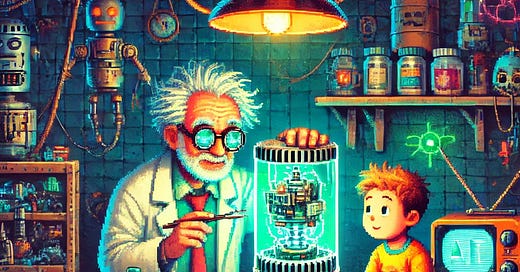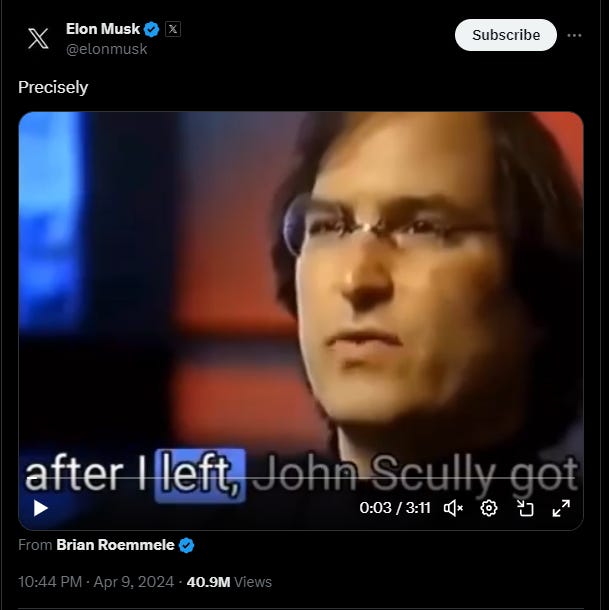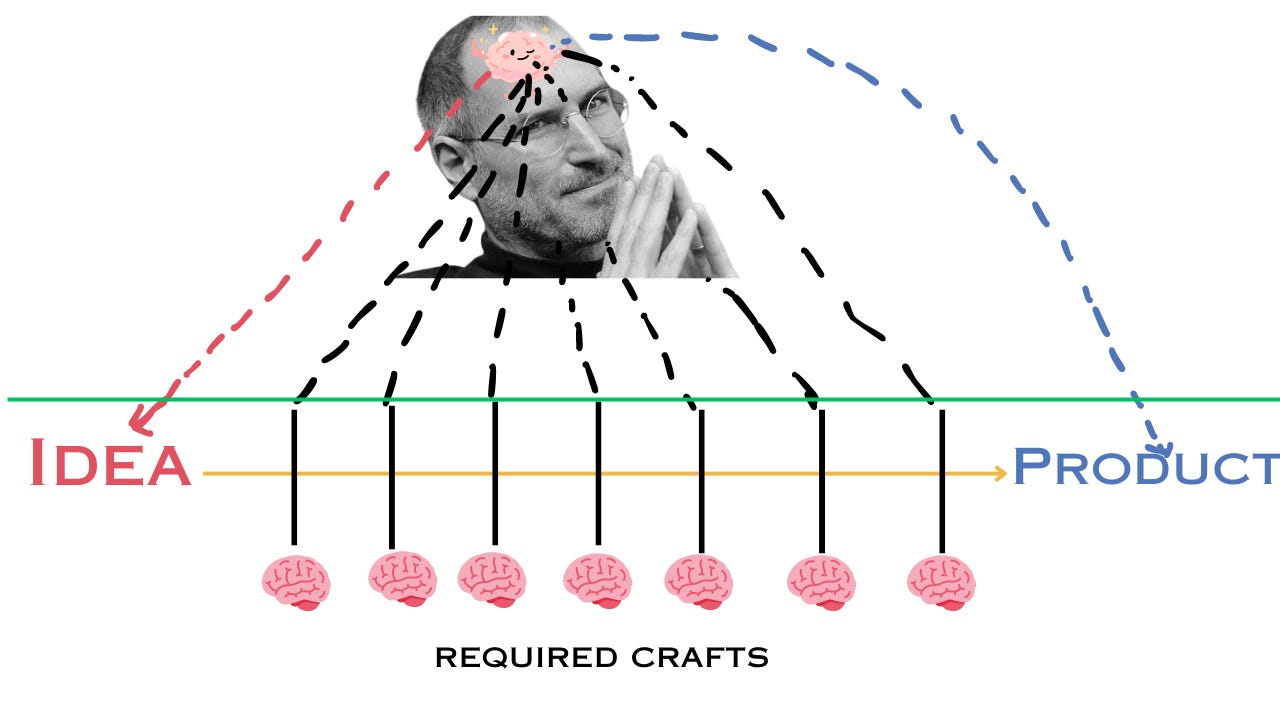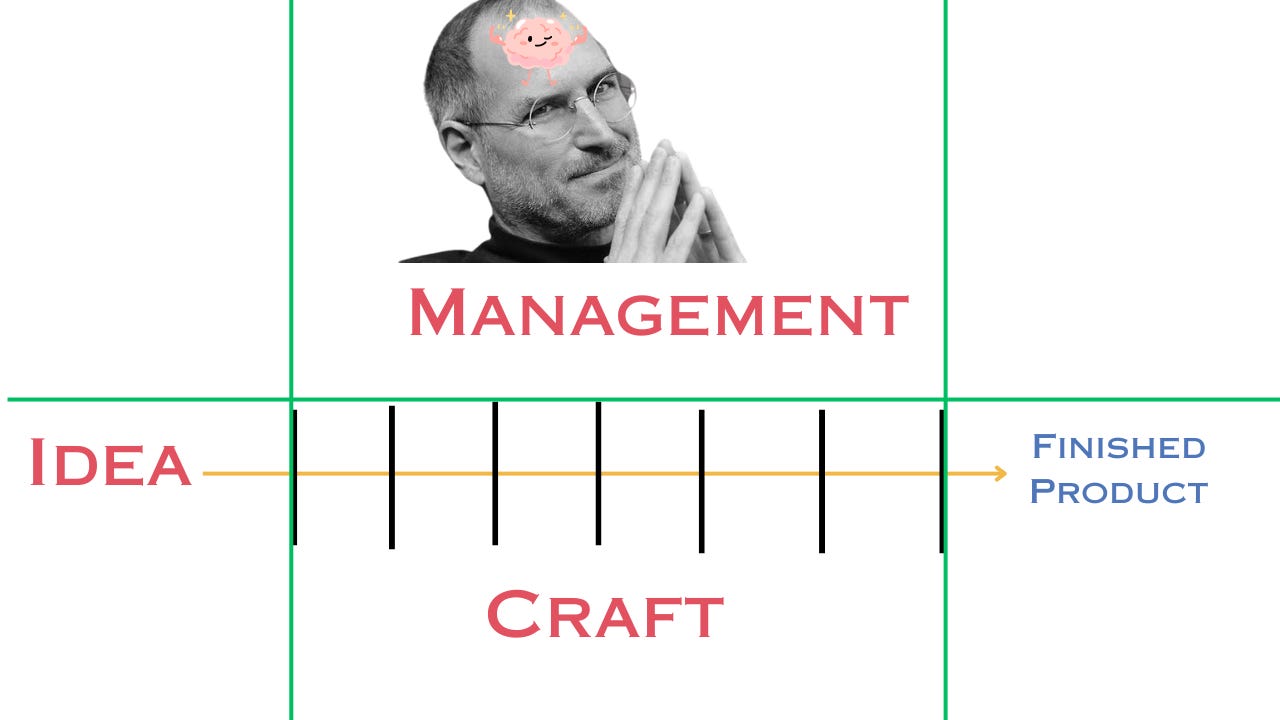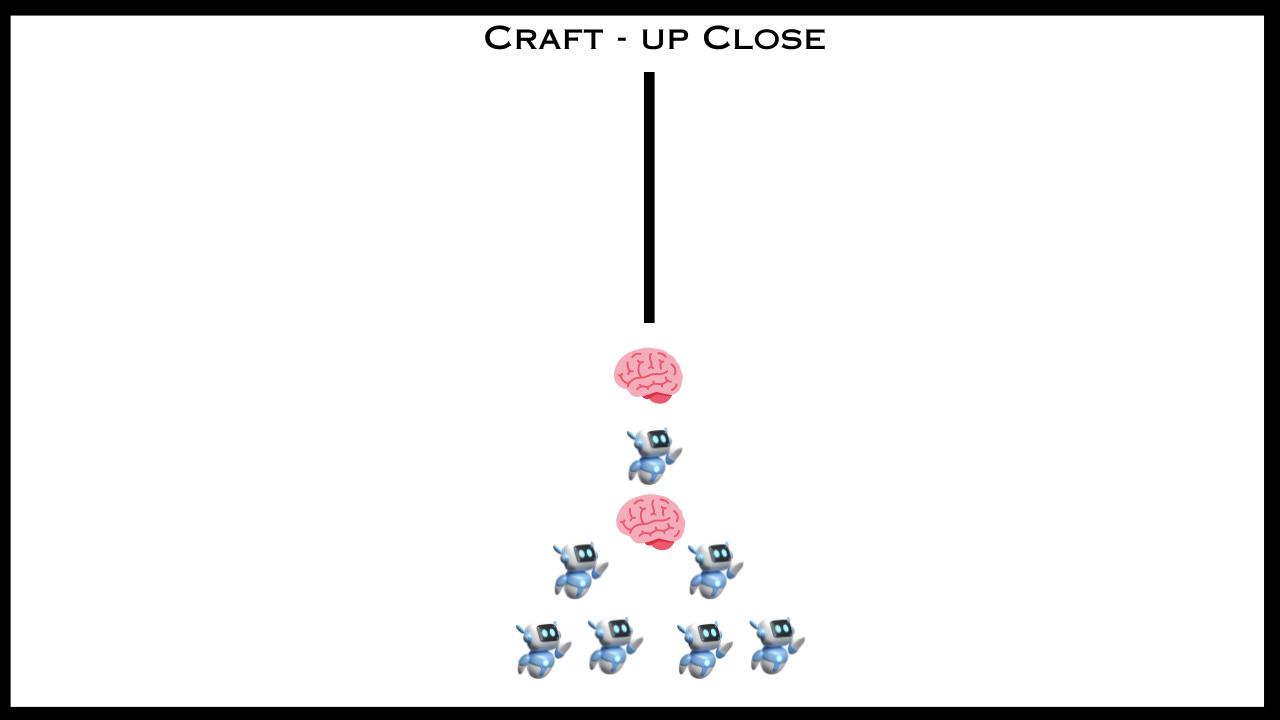The Frontier Letter has officially reached 100 subscribers. I'm grateful to all 100 of you for being part of this journey and for opening your attention space to my publication!
To celebrate, I'm going to select a random reader from the first 100 subscribers and give away any book of their choosing. You will receive an email from me within one week detailing that you've won. If you do not respond within one week, I will select another. You can choose any book under $75!
Be on the lookout in your inbox to see if you won :)
I hope you enjoy today’s piece as I look into how AI might practically start to revolutionize companies.
A surprisingly meaningful coincidence occurred on April 10th, 2024.
I start my day with a morning workout, followed by a 10-15 minute training session with my puppy Jax, and then we wrap up with a 5-10 minute YouTube video.
The suggested video that morning intrigued me:
Later, I was scrolling through my Twitter feed to find that Elon tweeted a derivation of that video the previous night!
Jung would call this a synchronicity.
Whether there is some logical causality that one can draw or not is beside the point. The event struck me as meaningful, indicative of something worth personal exploration.
I've been contemplating how technology may transform how we function within our organizational model.
The traditional 9-5 salaried employment model has never appealed to me. It felt to me like an outdated remnant from a previous era. The concept of remolding this structure lingered in my mind for years.
The video delivered me insight into one piece of this intricate puzzle.
Steve Jobs's core message is that having an idea is not enough to create a product. He affirms that building a great product from an idea demands exceptional craftsmanship.
A team of excellent players must argue about the craft and how to perfect it, and a leader must amalgamate all these facets together to make the best decisions about where the product goes.
He relayed a personal anecdote:
In his childhood, he had an elderly neighbor for who he occasionally did yard work. One day, the neighbor showed him a rock tumbler in his garage, constructed with a motor and a coffee can and held together by bands. The neighbor placed regular rocks, liquid, and grit powder in the can and ran the motor, instructing Jobs to return the next day. Upon return, the rocks were shiny and beautiful.
The friction of the rocks against one another, bumping and grinding, served as a metaphor for the process of creating a great product.
At the time, I was thinking a lot about the future of the Frontier Letter in the broader frame of the job market, which necessarily invokes the advent of generative AI.
I ask myself, what role will AI play in the idea-to-product spectrum?
Let's simplify this spectrum into three categories: Idea, Craft, and Management.
Idea = brainstorming, ideating, and hypothesizing the product.
Craft = performing tasks required to create the product.
Management = overseeing the execution of the idea and its evolution to a finished product
Logically, AI will need to exceed human task capability in a domain before it can manage that task. AI must first perfect the craft before managing it, and it must perfect all crafts before managing all of them! So, it seems more sensible that AI first starts to take over the Craft as it outperforms humans. That's to say, permitting AI to manage creation before it outperforms experts in the process of creation is a bad decision.
One Useful Thing's1 Ethan Mollick states,
No matter what happens next, today, as anyone who uses AI knows, we do not have an AI that does every task better than a human, or even most tasks. But that doesn't mean that AI hasn't achieved superhuman levels of performance in some surprisingly complex jobs, at least if we define superhuman as better than most humans, or even most experts.
The data2 seems to demonstrate this, too.
This indicates that AI will start taking over crafts where it has superhuman capability and makes the spectrum more efficient.
On the other hand, CEOs and product managers aren't typically better than domain experts in their tasks, but they are better at managing the product to fruition. Perhaps AI will first manage the tasks while humans execute them. However, something inside says this isn't the safest route and will receive the most pushback from the ego, as humans will repulse the idea of taking orders from AI. It’s also possible that even if AI becomes superhuman in every human task, we will choose to use it as an assistant rather than outsourcing it.
We still don't know the full extent of what tasks AI has superhuman ability. It's not even clear that AI will take over tasks starting at entry-level positions. AI has proven a remarkable feat of mankind, particularly over the past three years, but it’s still not certain how it will plug into an organization, at what levels, and to what extent. Maybe they always remain an augmentation and not a replacement; however, I think that’s unlikely.
Market competition will dictate that if AI can perform certain tasks more efficiently than humans, one company's adoption can lead to widespread implementation by competitors.
All being said, I believe that humans will opt to manage the product pipeline at the top, and the top-level management within each craft will remain, regardless of where AI agents start to plug into an organization - potentially looking something like this:
Jobs professed that leading the development of a product is "keeping 5,000 things in your head and trying to fit them together."
To me, the management of an idea's implementation is best led by humans, if not because of superior management skills over AI, because humans will want, and should have, the final say in where the trajectory of creation goes. The tasks required to get there will be the AI agent's domain.
To use Ethan's frame3, a Tier 3 AI will be when the Craft starts getting chipped away. Tier 2, when most crafts are replaced, and Tier 1, when it's conceivable an AI can perform the end-to-end.
When this video was delivered to Jax and my universe, I thought a lot about the Frontier Letter and what would remain in the future despite potential AGI.
I think that based on the reasoning laid out here, it's entirely possible that in the process of specifying the details of a system (bits first, atoms will come later) in a whitepaper type style, you can probably have a minimum viable product (MVP) spun if in short order by AI agents. In fact, it may be possible that reasoning and ideating in written format, as I have here, have in the past and will in the future, can serve as a preface to a whitepaper that AI writes for you.
If I input the loosely hypothesized system from The AI Epoch: Humanity, Economics, and the Job Market, I would imagine it possible for an LLM to take the initial idea and try and formalize a whitepaper based on those specifications, and upon completion, can be fed to AI action agents to move forward with the creation of the product MVP while I manage the design.
I hope that one day, I can take some of these pieces and try to spin up an MVP with advanced AI tools.
This way, I can instead watch a 25-minute YouTube video with Jax every morning :)
While it is impossible to predict precisely how AI will revolutionize employment, I think that the future of human work will predominately require the ability to think deeply and authentically, properly communicate one's thoughts, and build connections.
I think there will likely come a time when being able to write, speak, and manage ideas will become just as, or more important, than doing them.
If you have clarity of vision about what you want, and a machine exists that can do it better than you, your ability to communicate the task and the creation of the idea will complete the product pipeline.
For startup founders, learning deeply and broadly (down to the atom and up to god, as I like to say) and managing the evolution of ideas seems a good path to walk in an AGI future.
This is also why I think that the idea of being "replaced by AI" is nonsensical if you can do one of the following well: build connections, think authentically, and communicate ideas.
I do heed a warning to myself, though, that if AI can provably do something better than you, it doesn’t mean it IS YOU! This distinction is necessary, and discovering your authenticity is foundational - AI may become better than you and I at retrieving our ancestral thoughts and with high predictability relaying what someone from the past may have thought, but its neural structure will not fire the same way yours does in idea generation and communication.
How these things are practically implemented is yet to be discovered. I have been working on a letter explaining how I see it possible to create an effectively decentralized organization that executes tasks and can actually open up a new organizational paradigm.
I think that there is an opportunity to use blockchain technology to execute the beginning stages of this transition.
Once the infrastructure for a decentralized task-organizing operation is possible, then AI can start executing some tasks, effectively automating parts of an organization.
AI is being built, and we know that it can perform certain tasks better than experts, but we still don't have a way to organize it so that it can deliver efficiently, as we've written here.
In the next letter, I think I'll find an innovative way that we can do this, and that could work well.
Subscribe to the Frontier Letter to join us in the exploration of truth in the realm of emerging technology and how it affects humanity. Sometimes, it may be tech-heavy, and sometimes, it may be humanities-heavy, but most of the time, we will tread a fine line between both. To me, it's not only a fascinating topic, but it's an important one, and I’m excited to have you on board!
And until next time, take care of yourself, everybody!
Thank you for reading :)
Dom
Derived from Ethan's Superhuman?
If you debate with an AI, they are 87% more likely to persuade you to their assigned viewpoint than if you debate with an average human.
GPT-4 helps people reappraise a difficult emotional situation better than 85% of humans, beating human advice-givers on the effectiveness, novelty, and empathy of their reappraisal.
GPT-4 generates startup ideas that outside judges find to be better than those of trained business school students.
149 actors playing patients texted live with one of 20 primary care doctors or else Google's new medical LLM. The AI beat the primary care doctors on 28 out of 32 characteristics, and tied on the other four, as rated by human doctors. From the perspective of the "patients," the AI won on 24 of 26 scales of empathy and judgement."
Tier 1: AGI: “a machine that can do any task better than a human.”
Tier 2: Weak AGI: at this level, a machine beats an average human expert at all the tasks in their job, but only for some jobs
Tier 3 - Artificial Focused Intelligence: AIs beat an average human expert at a clearly defined, important, and intellectually challenging task.


